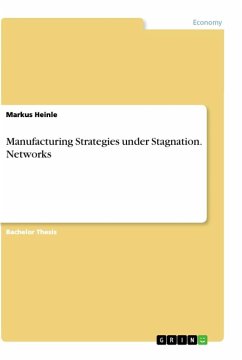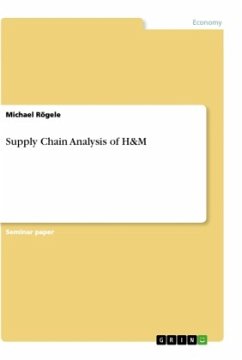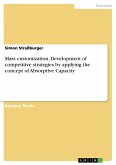Bachelor Thesis from the year 2018 in the subject Business economics - Supply, Production, Logistics, grade: 1,7, University of Stuttgart, language: English, abstract: While researching for literature on stagnation and operations strategy, not one source could be identified that links both subjects. In fact, literature on operations strategy generally seems to lack more concrete implications for turbulent situations. Therefore, this work addresses this gap and suggests that literature on strategies for stagnation needs to be extended by a network perspective. Concretely, the question, how a firm should configure its supply network depending on varying causes and consequences of stagnation will be answered. Even though most of the literature dealing with the topic of stagnation originates from the 70s and 80s of the last century, stagnant industries are still a phenomenon to-day. In the meantime, since the literature has generated the strategies, the concept of "outsourcing" has become popular across many firms. The content of this idea is basically dealing with the question whether a firm should make certain components or products by itself or buy them from external suppliers and by that outsource a part of an operation. This decision determines a firm's boundaries to other firms and also effectively determines its vertical integration. Having decided not to produce certain goods by itself, a firm must also determine the number of suppliers it wants to buy from and the relationships towards these. Extending this mention by the customer-side of a firm leads to the perspective of the "supply network". Decisions that change the structure of this network will have significant effects on an operation's performance in terms of quality, speed, dependability, flexibility and cost. Thus, Slack and Lewis hold that nowadays, it's not single operations that compete, but whole networks.
Hinweis: Dieser Artikel kann nur an eine deutsche Lieferadresse ausgeliefert werden.
Hinweis: Dieser Artikel kann nur an eine deutsche Lieferadresse ausgeliefert werden.








